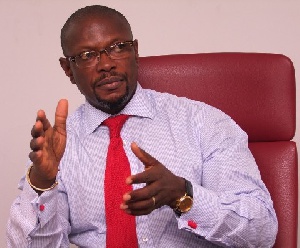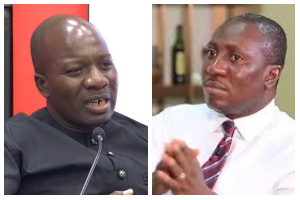Chief Executive of the Ghana Chamber of Telecoms Kwaku Sakyi Addo says government must prioritise the removal of taxes on end-user terminal devices if it desires to boost internet penetration in the country.
According to him, as long as the cost build up for service providers is high, the corresponding cost of internet services will remain high as well.
Mr. Kwaku Sakyi-Addo was speaking at a forum on affordable internet organised in Accra on Tuesday by Alliance for Affordable Internet (A4AI), a UK-based NGO. The forum saw the official launch of the maiden A4AI Initiative in Africa by Communications Minister Dr. Edward Omane-Boamah.
Sakyi-Addo said the increasing cost of inputs, such as energy, and the macro-economy as a whole also had an impact on what the end-user paid for telecoms services. Mr. Sakyi-Addo cited statistics from the ICT Development Index (IDI) in the International Telecommunications Union 2013 Report which put Ghana at 113th out of 157 countries. Among African countries, Ghana lies eighth.
The IDI measures ICT access, skills and usage and aggregates them from a minimum of zero to a maximum of 10.0 Ghana’s aggregate of 2.8 is above the Africa average but falls below the world average of 4.35 and 3.44 for developing countries.
South Korea is top at 8.6, with Niger at the bottom at 0.99. Sakyi-Addo said Ghana had made strides in the telecoms sector, but a lot more remained According to him, “Ghana Investment Fund for Electronic Communication (GIFEC) is putting up public terminals in rural communities. Although the price of smart devices is falling, we can help drop it further by removing the taxes on the devices so that our people can buy their own handsets and use them.” Sakyi-Addo said.
GIFEC is funded from statutory deductions from mobile telecom operators. A GIFEC official, Mr. Zakaria Osman, told the forum that the communities were unable to maintain the public access internet facilities after GIFEC had handed them over.
The A4AI Initiative saw the formation of a new national multi-stakeholder coalition and action plan in Ghana. The stakeholder coalition will contribute to government policy on bringing about affordable internet access, according to the Executive Director at the World Wide Web Foundation, Sonia Jorge.
A4AI is made up a diverse group of private, public and civil society sector players advocating for open, competitive and innovative broadband markets. Its Global sponsors include Google, Omidyar Network, UK Department for International Development and USAID.
In October 2013, A4AI started engaging with stakeholders in a number of countries across Africa, Asia and Latin America, and the group has already signed a Memorandum of Understanding with the governments of Ghana and Nigeria.
Business News of Thursday, 13 February 2014
Source: B&FT













